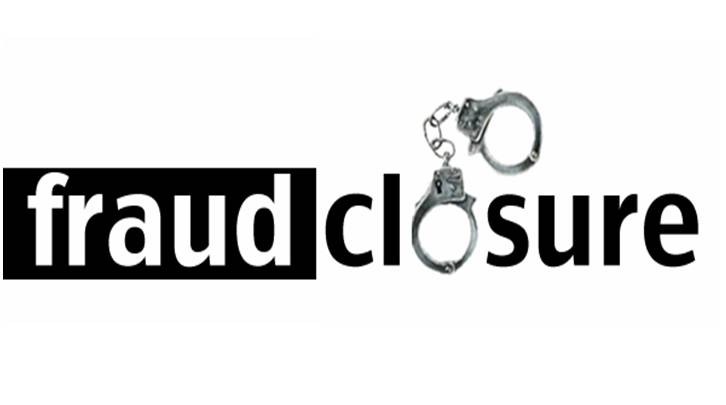HSBC draws ire by trying to close hearing, purge file
The First Amendment Foundation wants to stop HSBC Bank from closing a foreclosure hearing and purging a file that indicates it does not own the note.
Adolfo Pesquera
A mortgage trustee wants a Palm Beach circuit judge to purge court records submitted by its agent who said the wrong lender is seeking foreclosure against a West Palm Beach woman.
Abby G. Lopez, a next-door neighbor of Palm Beach clerk of court candidate Lisa Epstein, received a foreclosure notice in September 2009 from HSBC Bank USA as trustee for a Deutsche Bank mortgage security.
HSBC’s law firm, Smith, Hiatt & Diaz of Fort Lauderdale, filed a payment history last October that included a peculiar email exchange between mortgage service employees.
In the emails, a Lender Processing Services worker states HSBC doesn’t match “our system of record. Please advise us regarding a reliable procedure whereby the appropriate foreclosing party can be situated in the matter such that we can proceed to judgment of sale.”
The Lender Processing employee was advised internally by a supervisor to correct this by submitting a quitclaim deed after the sale. That would transfer title to the correct bank but only after HSBC had completed the foreclosure.
Peter Snyder, Lopez’s defense attorney from Boca Raton, then tried to depose Kimberly Sue Daley, who swore to the accuracy of documents filed with the clerk of court. She identified herself as “an officer of Bank of America, which is plaintiff’s servicing agent.”
That’s when the ground started moving under Snyder’s feet. HSBC’s counsel filed a protective order to stop the deposition, he said. Then the bank’s lawyer backed off and appeared willing to schedule the deposition.
“A week later, they filed a motion to purge, which came as a big surprise to me,” Snyder said.
HSBC’s motion seeks to discard the affidavit of indebtedness file, which includes Lopez’s payment history and the servicer employees’ email exchanges.
He asked Smith, Hiatt & Diaz for its witness list to prepare for the hearing. The next thing Snyder knew, HSBC switched law firms, and he was dealing with Marc Gottlieb of Akerman Senterfitt in Fort Lauderdale. Gottlieb did not respond to a request for comment by deadline.
A May 24 hearing to delete the emails from the court record didn’t get far. Michael Redman — founder of 4closureFraud.org, a leader in the foreclosure defense movement and an associate of Epstein’s — alerted a loose-knit group of volunteers willing to show up to support families going through foreclosure.
Redman and more then 15 spectators wearing polo shirts bearing the words “foreclosure watch” attended the hearing. Redman said Gottlieb tried to persuade Palm Beach Circuit Judge John Hoy’s bailiff to bar spectators from the hearing. That failed, and Gottlieb raised his objections with Hoy.
Closed Courtroom
“The whole argument was closing the courtroom to the public,” Redman said. “Hoy said he didn’t have the authority. Gottlieb was very frustrated, he believed we should be kicked out. The judge gave him the option of filing a motion to close the courtroom or proceed in open court.”
On June 5, the First Amendment Foundation filed a motion to intervene on behalf of Scripps Media Inc., WPTV-TV and the Sun Sentinel.
“Very few court proceedings are closed by law,” explained First Amendment attorney Deanna Shullman of Thomas & LoCicero in Lake Worth. “I’ve never seen an attempt at closure in foreclosure proceedings.”
Closed proceedings are acceptable in hearings involving trade secrets and occasionally to protect children, Shullman said.
In the bank’s motion, Gottlieb is claiming the affidavit of indebtedness file provided by the mortgage servicer should be shredded on grounds of attorney-client privilege. The bank acknowledges disclosure of privileged information constitutes a waiver but argues there is no waiver if the disclosure was inadvertent.
Shullman states in her motion to intervene: “It makes no sense to close the courtroom to discuss a record already in the public domain where the primary crux of the hearing is simply to determine whether a document — already in the court — may be used by the defendant in these proceedings.”
Snyder has practiced law for 31 years, and he’s never been involved in a hearing to close public access, nor does he understand why it is happening here.
“I didn’t expect all this,” he said. “I don’t know what the motivation is because it seems like it’s way overkill when what they could do is dismiss the case and start over with the right plaintiff.”
Voluntary dismissal of a foreclosure case by a bank is a common practice in foreclosure cases to cure errors. A case is pending before the state Supreme Court that is testing how far banks and servicers can take this practice.
What the bank is saying in essence, Snyder concluded, “is we know we’ve brought in the wrong plaintiff and we want to use ‘attorney-client privilege’ to get you to ignore it.”
No hearing has been set on the motions to close the hearing and purge the file.
“Gottlieb did not respond to a request for comment by deadline.”

~


They were pretty stupid preying on homeowners in Lisa’s neighborhood. I can’t even think of a comparison.
They will try anything to keep the curtain up! Fight the good fight! Challenge everything, its more than likely Bull_h_t!!
Good luck to all fighting. Its about time these sort of things come to light. Will forward this to mainstream media, but I am sure they will not follow up with it!
Thank you JESUS….AMENNNNNNNNNNNNNNNNN The shepherds of satan will all be defeated.
They are already defeated…at Calvary…we need only to stand and occupy …